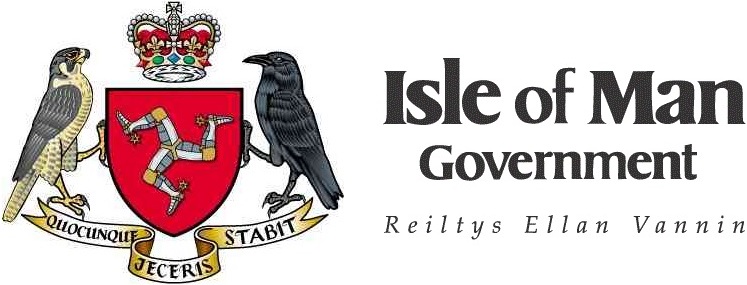Consultation on the Vapour Products Bill 2023
Feedback updated 6 Jun 2023
We asked
Following engagement with retailers and public bodies, a consultation on the Vapour Products Bill 2023 commenced on Friday 23 December 2022 and concluded on Sunday 29 January 2023, although responses submitted by 1 February 2023 were accepted by the Department.
This was achieved using online survey published on the IoM Government consultation hub. This survey sought views on the main policy goals the Bill was intending to support, quoting parts of the Bill where appropriate, as well as seeking general feedback on the Bill and suggestions for future policy development. To assist the completion of this survey an early draft of the Bill was published at the same time, along with a downloadable copy of the consultation questions.
You said
The Department received submissions from 308 people to this consultation, of which:
- 294 responses were from members of the public
- 5 were from vapour products retailers
- 5 were on behalf of public bodies
- 1 was from a manufacturer of tobacco and vaping products
- 1 was from a Manx Advocate
- 1 was from a Member of Tynwald
- 1 was from a Trade Union
These responses set out in these submissions can be broadly categorised as:
Broad agreement with the proposed contents of the Bill
These responses to the Bill were generally in agreement with the proposed contents of the Bill, answering YES to all of the consultations main questions. These responses often expressed concern over vaping by large number of children (17 responses) or vaping in schools (16 responses).
Where feedback was given it was to suggest technical improvements to the drafting of the Bill (e.g. 7 responses suggesting minor corrections to the Bill), or expressing concern as to its enforceability, while still respecting the broad policy goals the Bill is intending to achieve.
Notably, these responses were supportive of the need for better regulation of vapour products labelling (92 responses) and health warning labelling (14 responses), which could be introduced in line with UK regulatory controls (supported by 4 responses) or IOM specific legislation (11 responses).
These responses also highlighted the potential difficulties and costs on retailers of complying with the proposed regulatory controls with suggestions for alternative controls on displays (8 responses) and simply requiring vapour products to be sold from behind the counter (7 responses).
Further controls are needed for vapour products
These responses to the Bill were supportive of the proposed measures, but suggested these could be extended.
The main focus was on removing vapour products from being visible at the point of sale (97 responses) or having the sale of vapour products regulated in a manner similar to tobacco (85 responses).
68 responses expressed concern potential impact of vaping on an individual's health (68 responses), and the effect on the persons around the person vaping, 78 responses also suggested the use of vapour products in public places should be regulated.
Making vaping less visible was also supported with responses advocating for partial or complete bans on vapour product advertising (34 responses), controlling advertising of such products to children (21 responses) and regulating the flavour of such products to make them less attractive (19 responses)
These response were also opposed to there being any exceptions for allowing the sale or supply of vapour products to persons under 18 (62 responses) by their parents or anyone else, with 16 responses expressing concern as to the existing exceptions for the supply of tobacco by parents to persons under 18.
There was significant concern expressed in 68 responses as to the health impact of persons' vaping and those around them, and respondents suggested the age for buying vapour products should be increased to 21 or 25.
Low to no regulation required for vapour products
In this category responses to the Bill were of the view that no legislation is required (19 responses) or more evidence would be needed to support legislation (19 responses), along with the view that vapour products as harmless (5 responses).
These responses were often of the view that retailers were taking sufficient voluntary measures to control the sale of vapour products (7 responses), with no need for lockable cabinets (10 responses), and there was little need for regulatory controls or enforcement powers as a consequence.
Some feedback indicated support for voluntary controls (7 response) or took that view that age controls only needed from 16 (6 responses) in line with voting age restrictions.
Stricter controls required on vapour products, tobacco and tobacco products
This category of responses to the Bill argued for complete, or near complete, bans on the sale and use of vapour products (38 responses).
Such suggestions often extended to a complete, or near complete, ban on the sale of tobacco and tobacco products as well referencing the approach taken in New Zealand and Singapore.
These responses often made the case for stricter regulatory controls than the UK (15 responses), greater enforcement generally (15 responses) and in schools (15 responses), supported by broader enforcement powers for the police (5 responses).
From a retail perspective, if the sale of vapour products was allowed it would only be for persons over 21 (4 responses) or 25 (4 responses) or only for supporting smoking cessation (4 responses).
These views were formed based on the perceived health risks posed by vaping and smoking, the social nuisance value of such activities.
A detailed summary of responses document has been compiled and published on the consultation webpage.
We did
Having considered the consultation feedback, and undertaken further engagement with key stakeholders, a number of amendments to the Bill have been identified and agreed by the Department.
These amendments were:
- Amending the title of the Bill to refer to 'Vaping Products', rather than 'Vapour Products'
- Clarifying the definition of vaping products, to ensure the Bill only applied to such products and not to items such as batteries or medical devices
- Providing that persons acting on 'reasonable belief' that a person is over 18 are not committing an offence under this legislation
- Enhancing the controls on the display of vaping products in light of feedback from the consultation, removing advertising of vaping products in retail premises, and only allowing the products to be displayed to persons over the age of 18
- Ensuring the police have the necessary powers to seize and dispose of vaping products being used by persons under 18 in public places
- Making a number of minor technical changes to improve the drafting and formatting of the Bill. A revised Bill incorporating these changes is in the process of being drafted and will be introduced into the House of Keys at the earliest opportunity
Furthermore, Public Health will:
- Engage with DEFA on regulating the use of single-use vaping products under the powers provided by the Climate Change Act 2021
- Undertake further engagement with young people with respect to vaping products
Results updated 6 Jun 2023
Files:
- Summary of responses - Consultation on the Vapour Products Bill 2023, 218.6 KB (PDF document)
Overview
Vaping devices, commonly referred to as vapes or e-cigarettes, heat up a vaping liquid or gel to create a vapour that you can inhale. Vaping liquids typically contains nicotine, but may be used to deliver flavoured products or drugs such as cannabis or Spice (a synthetic drug similar to cannabis).
Evidence points to vaping being considerably safer than tobacco smoking for established smokers, and vaping is presently the number one method for adult smokers to quit, or temporarily abstain from smoking.
However, UK evidence shows that 7% of 11 – 17 years olds in the UK occasionally or regularly vaped in 2022. While there is no Isle of Man specific data at present, the assumption is that young people use vaping devices and products on the Island to at least the same level as those in the UK given the Island’s cultural and economic similarities.
We are seeing a rise in operational issues in schools and petty theft from shops in the Island, which is likely related to an increase in regular use of vaping products by young people. There are also public health concerns as to potential long term health risks of vaping by young people.
Officers in Public Health, the Office of Fair Trading (OFT), the Isle of Man Constabulary (IOMC), the Department of Education, Sport and Culture (DESC), the Department of Health and Social Care (DHSC) met to discuss these issues and how they may be resolved or mitigated.
Broader public concern led to questions being asked in the House of Keys as to when legislation would be introduced to provide age controls on the sale of vapour products (i.e. vaping devices and vaping liquids and gels).
In responding, Hon. Kate-Lord Brennan (Minister for the Cabinet Office) gave a commitment that a Bill would be introduced into the House of Keys by Easter 2023. This Bill would introduce such age controls and, potentially, provide for controls on vapour products that are banned elsewhere.
Following engagement with retailers and other public bodies, as well as research into the similar UK legislation, Public Health directed the drafting of the Vapour Products Bill 2023 (the Bill).
The Bill has been drafted to:
- prohibit the sale or supply of vaping products and vaping devices to persons under 18 years of age
- place controls on how vaping products and devices may be displayed at the point of sale
- provide for regulatory standards for vaping products and
- for the enforcement of the controls set out in the Bill
Enforcement will be undertaken mainly by the OFT, in line with similar controls on tobacco. The Bill also provides for support for the Bill’s enforcement by officers in the IOM Constabulary and Isle of Man Customs and Excise.
As a consequence, the Bill is intended to:
- reduce the number of persons under the age of 18 that are using vapour products
- reduce retail theft of vapour products
- improve consumer safety standards, in line with standards in the UK and EU, for the benefit of adults using and consuming vapour products
- mitigate against the long term risk to public health, on a precautionary principle basis, posed by vapour products in alignment with the approach taken in the UK
The efficacy of this legislation will be monitored by Public Health via surveys undertaken before, and after, the legislation is brought into effect.
The purpose of this consultation is to gather views from the public on the regulatory controls proposed by this Bill, and to use those views to inform possible amendments to the Bill. The Bill, incorporating any amendments made following the consultation, will then be introduced for debate in the House of Keys and, subsequently, Legislative Council.
An early draft of the Bill is provided below under 'Related' for consultation purposes. Drafting revisions may be made in light of this consultation, and / or the requirement for any further changes identified for legislative or policy purposes.
Why your views matter
By responding to this consultation, you have an opportunity to inform the Isle of Man Government’s approach to regulating the sale and supply of vapour products.
How to respond
The deadline for responses is 23:59 on Sunday 29 January 2023.
Responses should be made via the Online Survey link below or in writing to:
Lauren Gray, Senior Health Improvement Officer
Public Health, Cabinet Office,
Cronk Coar, Nobles Hospital
Strang, Douglas
Isle of Man, IM4 4RJ
If you have any questions or wish for this consultation to be translated, please contact either of the following officers in Public Health:
- Lauren Gray (Senior Health Improvement Officer)
Telephone: +44 1624 642693, Email: lauren.gray@gov.im
- Karl Cubbon (Policy Officer)
Telephone: +44 1624 642615, Email: karl.cubbon4@gov.im
Areas
- All Areas
Audiences
- All residents
Interests
- Addictions
- Health
- Public Health


Share
Share on Twitter Share on Facebook